Author: Katharina Sophia Huettermann
Complaining in Process: Sketches


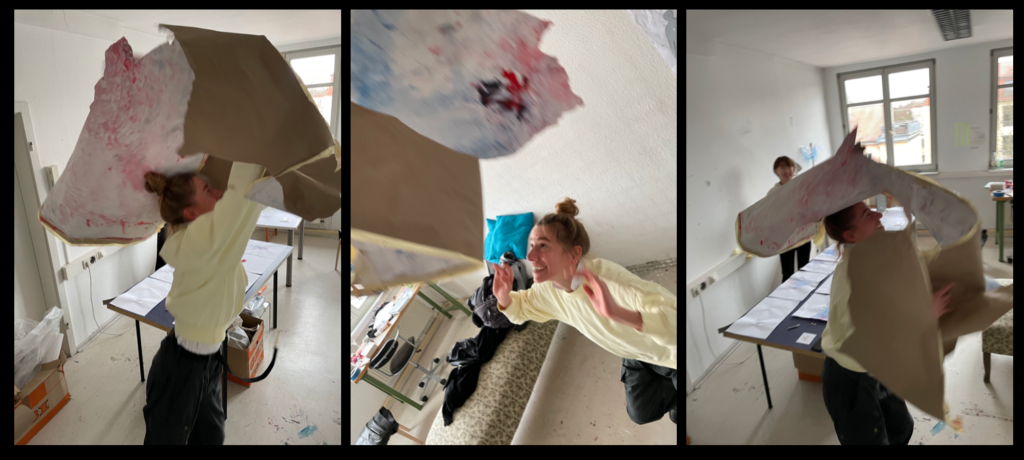
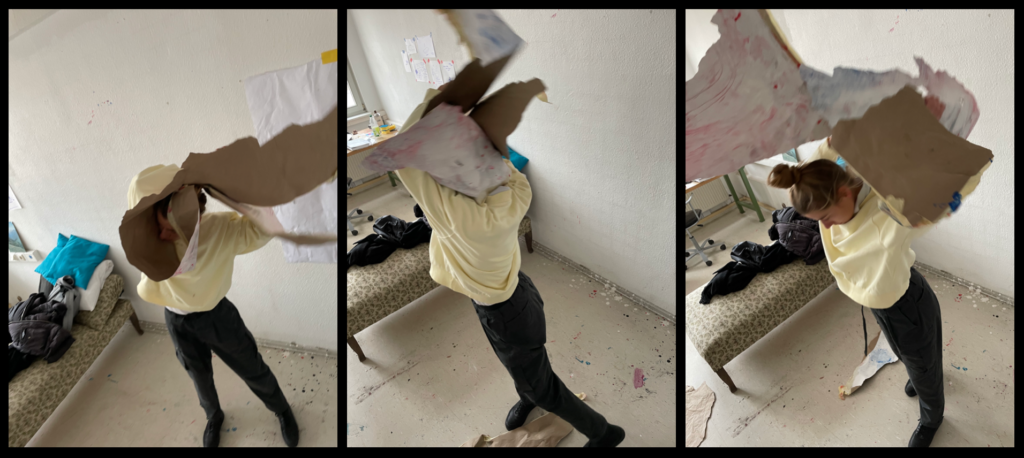
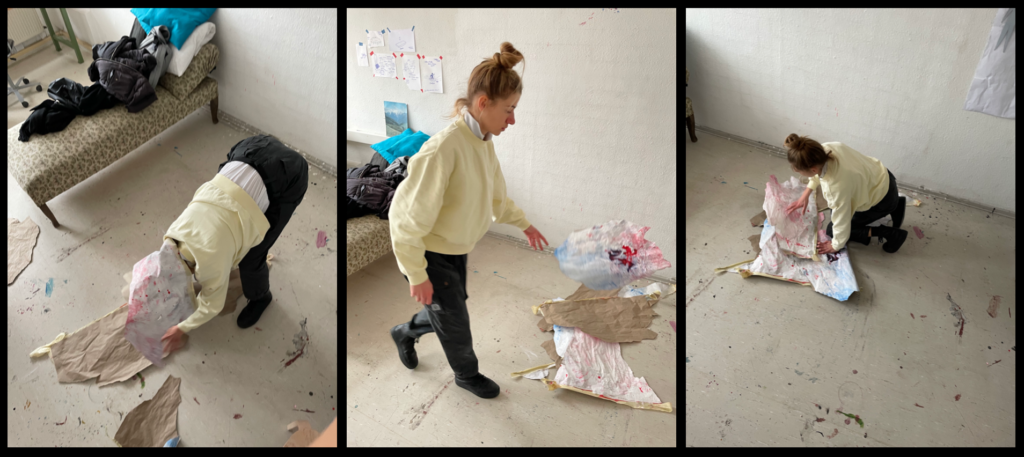
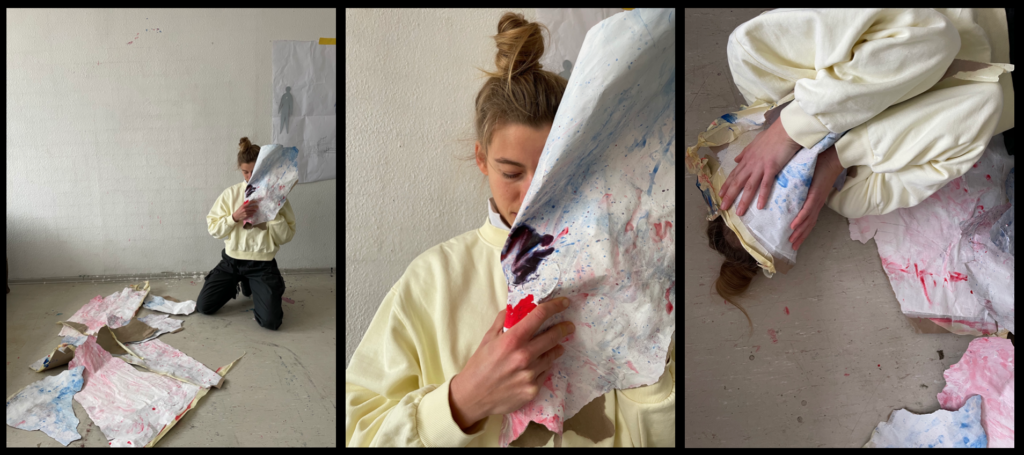
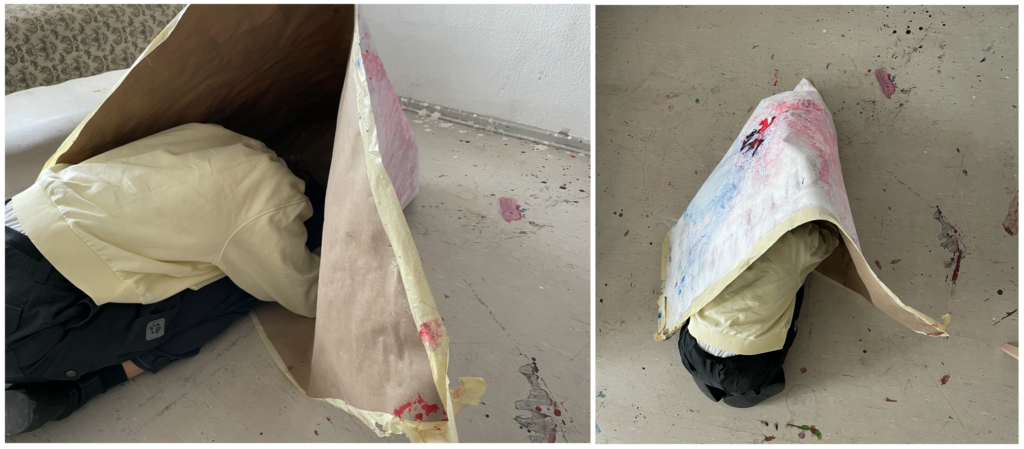
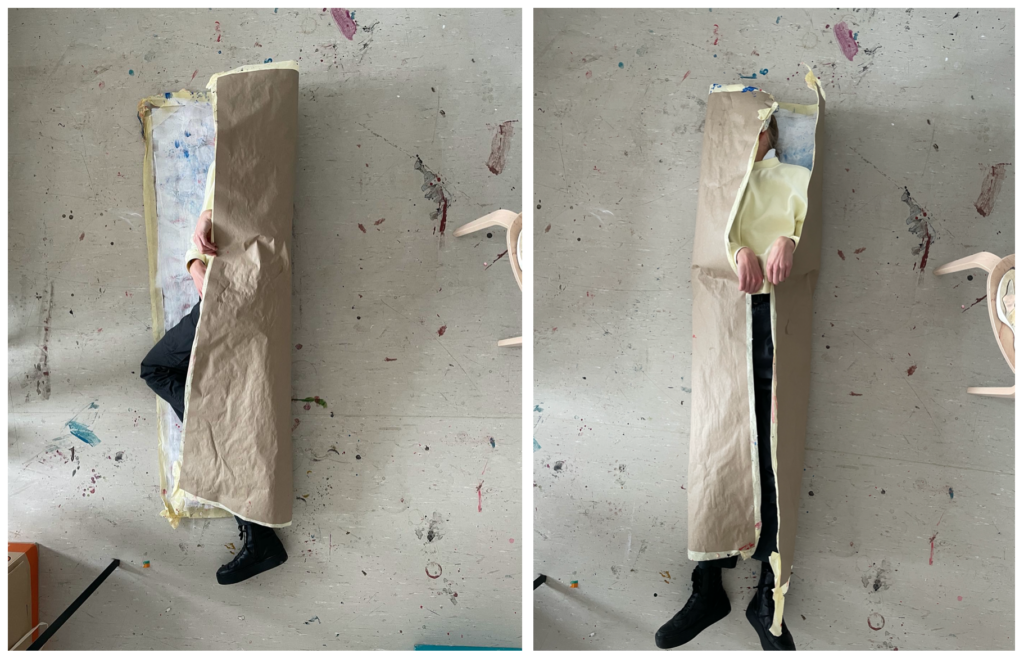
Complaining in Process: Painting
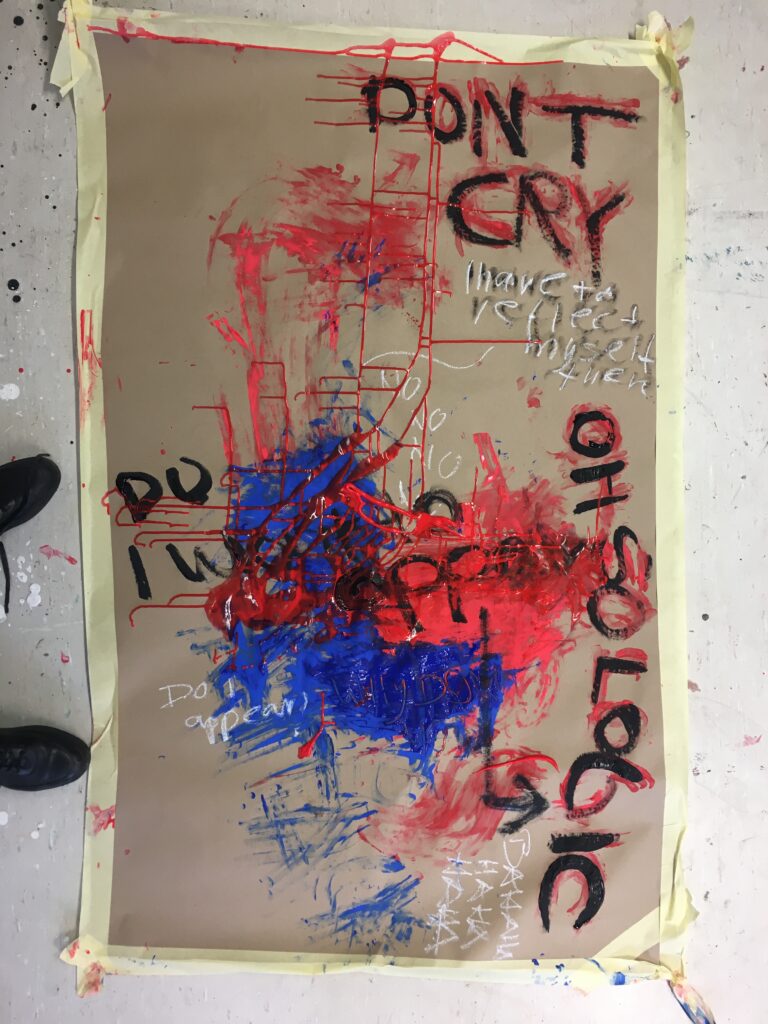
After sharing my personal experience with complaining and having F too close at the same time, I let anger directly bleed on paper.

First outburst to leave doesn’t feel good, doesn’t feel right.
Another layer should calm down outspoken words, should offer time to reflect on them.

However complaint need time, it will not erase. To cover complaint, to drown it doesnt quite work. The complaint is there no matter how much you put on it.
It gets calmer through times YES, but it still wants to achieve. It is motivated, it is alive, it wants to succeed and it will come out again…
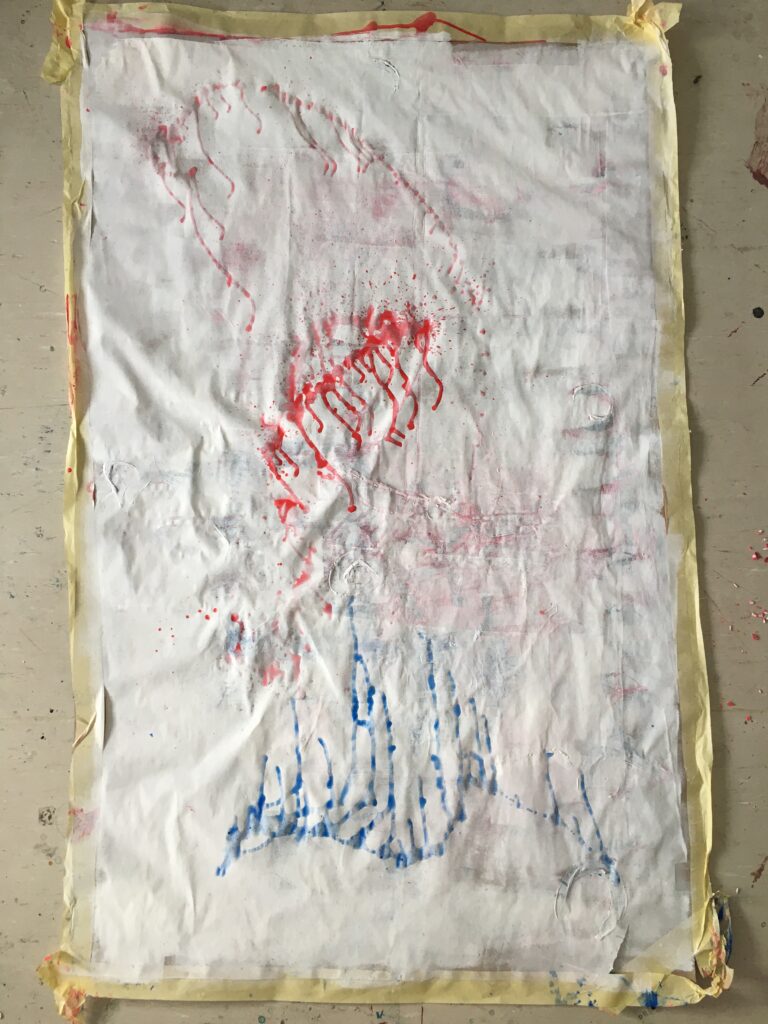
… different this time: slower, with caution based on the history of complaint.

Justice, equality and freedom are things in life we might all want. But how to deal in a system where this is only valid for one? To change the system, to break down borders, to achieve a respectful communication demand work and patience. It means to understand, to explain, to react, to reflect, to act, to react, to reflect, to understand, to explain again -> for justice, equality and freedom. For love and communication, to stay connected and not alone.
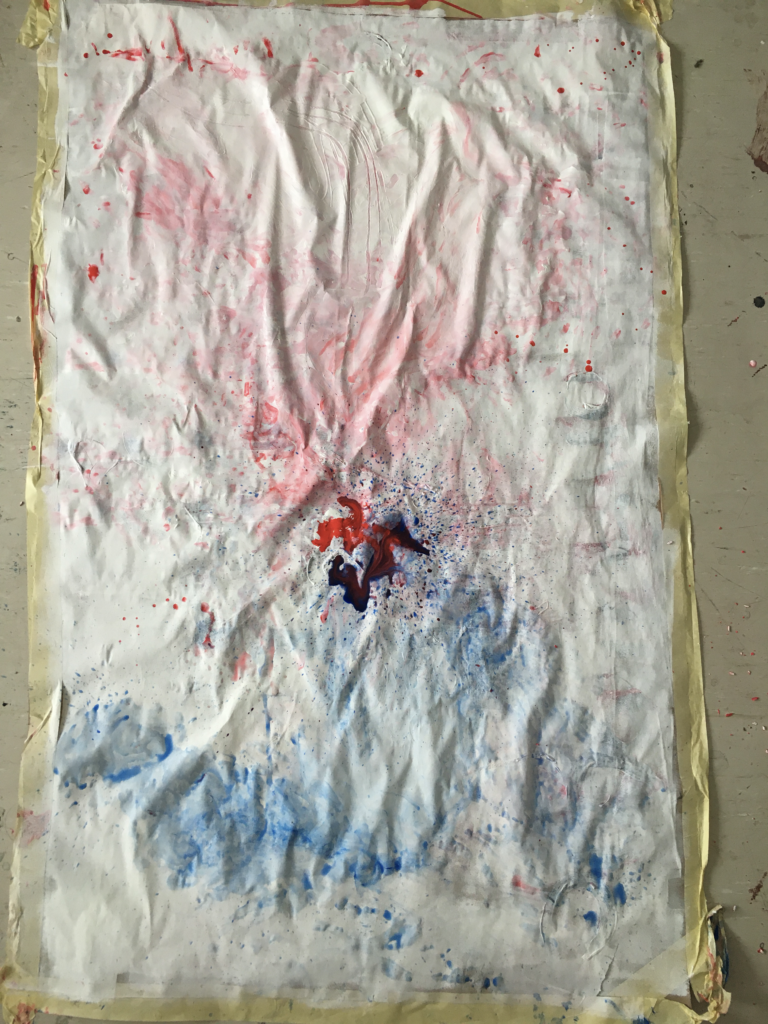
However you want to stay connected: Getting to close involves risk for damage. Its a game, a steady negotiation of distance and participation. There is tension to eat each other, to destroy, to fall apart again…
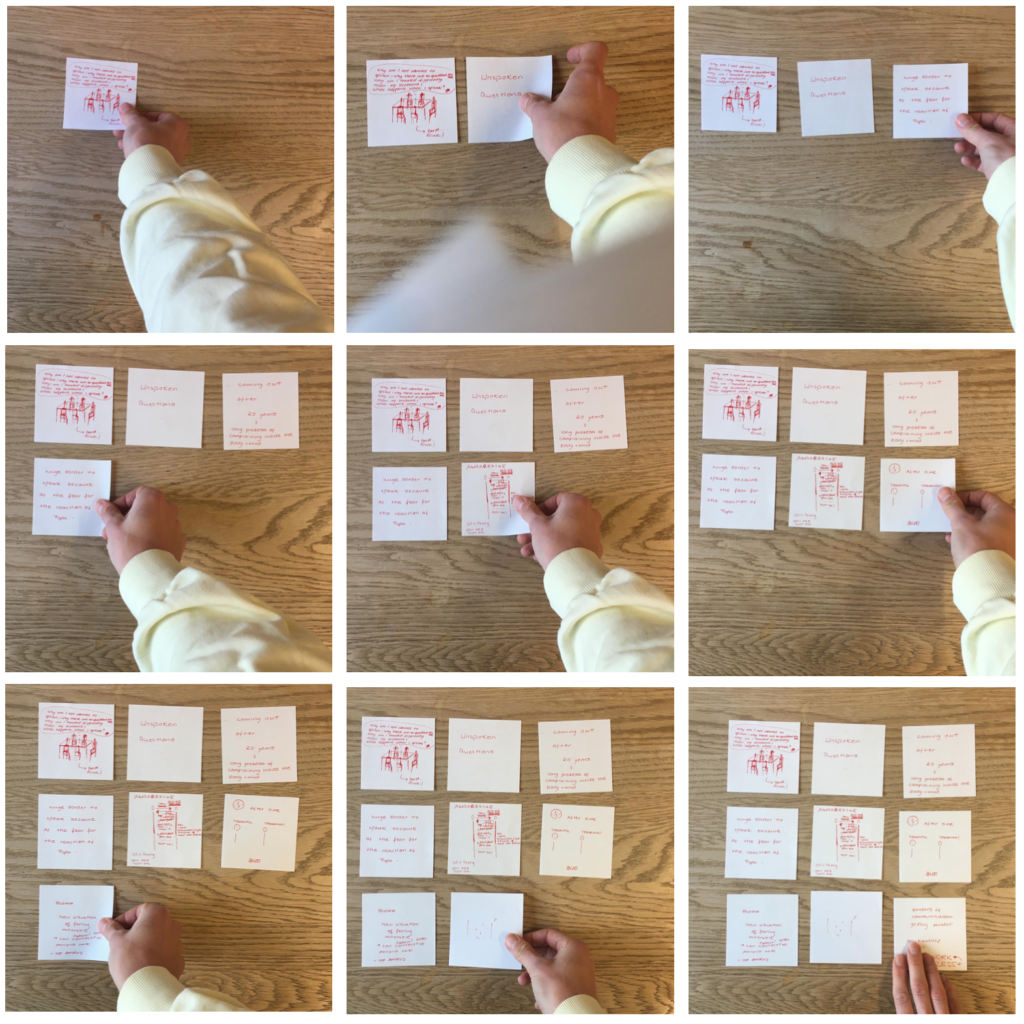
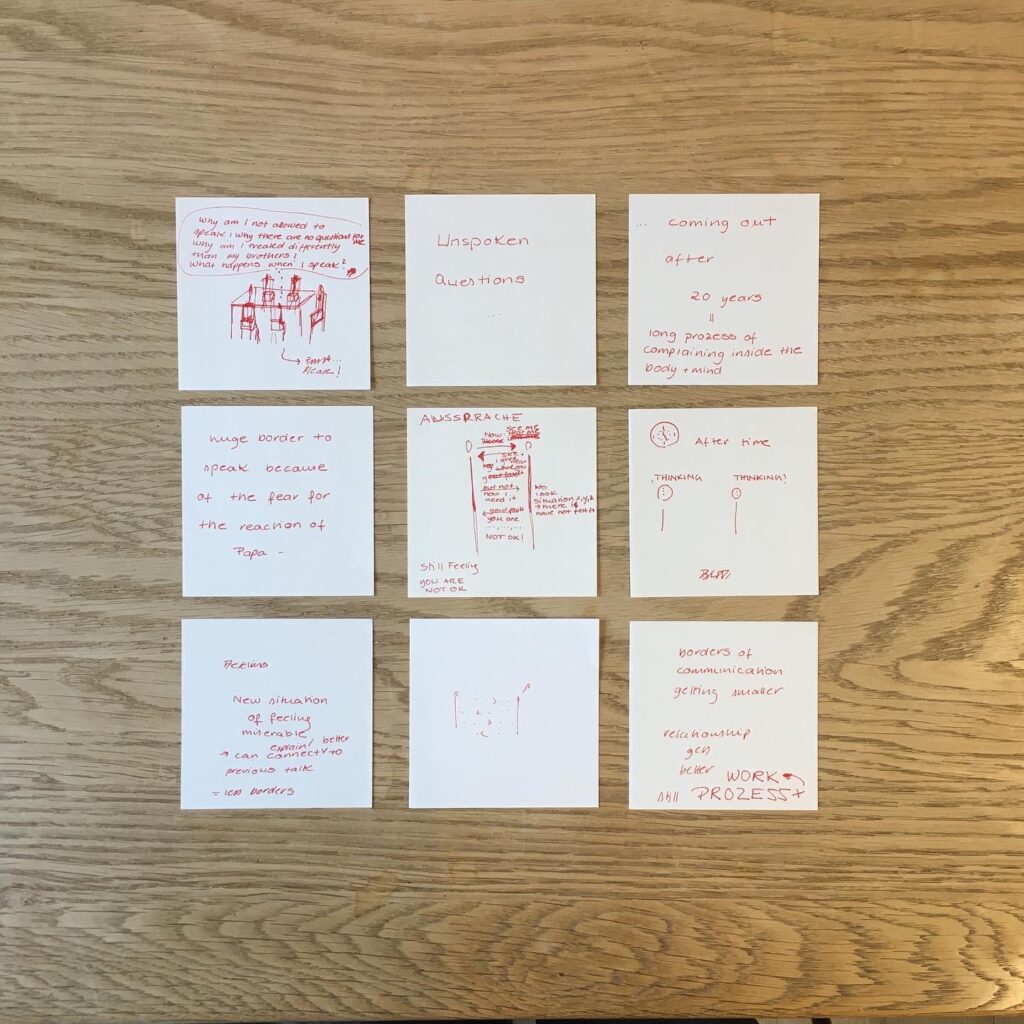
Reading Sara Ahmed’s Book Complaint! let me think of my personal experience with complaining in an institution:family. Ahmed describes how hard it is to get a complaint through within an institution and so I do.
complaining vs. criticizing
What’s the difference between complaining and criticizing and how do I see myself in con- and reaction with proposed definitions ?
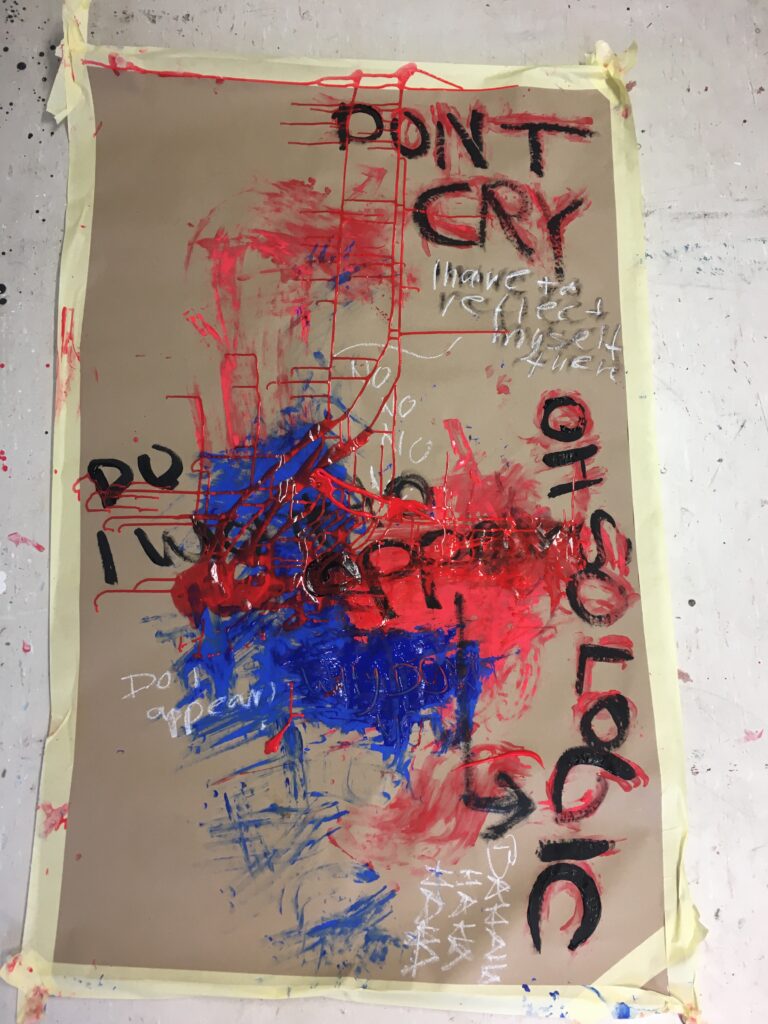
Complaining in process.
Mapping talks with and thoughts about father in between criticizing and complaining.What’s the difference between complaining and criticizing and how is it seen: a) in my family ? b) in society? c) published on “simplicable”? And Why ?

Collective perception of complaining vs. criticism.